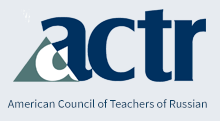Russian Language Journal
Keywords
intercultural communication, speech etiquette, speech behavior, politeness category
Abstract
Scholars in both the theory and practice of foreign language study have justifiably recognized the formation of student intercultural competence as an essential condition for effective second language acquisition. This study describes the challenges of teaching an advanced course on “Intercultural Communication” for US students in the Flagship Program in Kazakhstan. The course places an emphasis on the acquisition of lexical, phraseological and socio-pragmatic aspects of Russian essential for dayto- day communication in an advanced immersion setting. In addition, the course examines common forms of both verbal (e.g, use of kinship terms, forms of address) and non-verbal communication behaviors (e.g., use of gestures, monochromic versus poly-chronic views of time) central to the culture of educated speakers of Russian within the distinctively bilingual/ bicultural environment of contemporary Kazakhstan. The ultimate goal of the course is to enable students to emulate more closely and with greater appropriateness and confidence the native speech patterns of the region. The teaching materials for the course are balanced between academic and popular texts to broaden the range of themes and contexts of the student’s intercultural communication skills. Many are also integrated with the Program’s cultural and co-curricular activities.
Recommended Citation
ИБРАЕВА, Ж. (2020). Особенности преподавания курса «Межкультурная коммуникация» для студентов программы «Флагман» в Казахстане. Russian Language Journal, 70(1). https://doi.org/10.70163/0036-0252.1033


